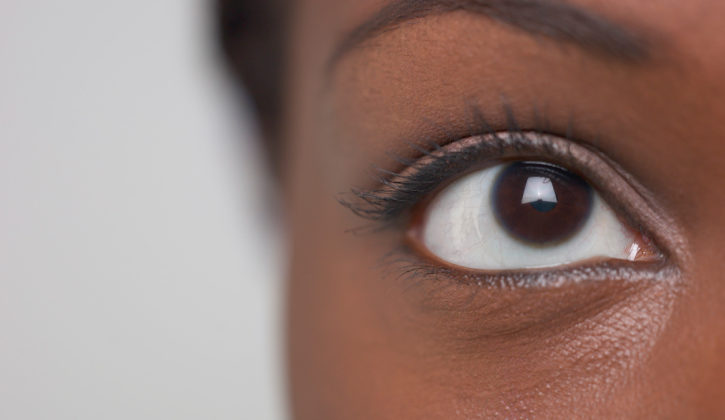
Is There A Connection Between Schizophrenia And Menopause? It somehow appears a bit unfair that women have to bear a lot of physical and hormonal changes within their body over a lifetime and men don’t “seem” to go through nearly as much as we do in comparison to our health.
Oh, Eve why did you sin in the Garden of Eden?! Women have periods, cramps, hormonal issues, and our stomachs, and hips expand and shrink to bear children, and then we get hit with a big whammy- MENOPAUSE! Why?!
Hot flashes, low estrogen, low sex drive, sleepless nights, and schizophrenia symptoms seem to be a recipe for disaster for women of a particular age. But don’t fret, living with menopause and schizophrenia can be challenging for anyone. But menopausal schizophrenia is more common than you may think.
Although both conditions can be difficult, each can be managed properly so that you can live a fulfilling life under the guidance of your physician.
What exactly is menopause? Menopause occurs when your menstruation cycle permanently ends which happens after 12 menstrual cycles are missed. The menopausal transition is usually followed by menstrual irregularities, decreased fertility, vasomotor symptoms, and insomnia.
During this time, research estimates that 20% of women experience depression or psychiatric problems during this transition. Menopause comes in like a wrecking ball, affecting your hormones, your mood, and your sex life by causing dryness in the vagina.
Let’s not forget, even life stressors can also heighten the rate of depression and menopause if you lack social support, have poor overall health, are unemployed, or have a preexisting tendency towards depression.
Many case studies show that schizophrenia occurs in 1% of the population and is split evenly among men and women. Some women are diagnosed with schizophrenia in their mid to late forties and the menopausal transition usually takes place during the same time.
Our female hormones can have us going on a roller coaster ride, have you feeling like you are dealing with a midlife crisis, or becoming a crazy lunatic.
It’s easy to dismiss your feelings but don’t if you start experiencing hallucinations, outbursts, the feeling of being paranoid, or hearing voices.
If you do, seek immediate help from a health professional because there are many overlapping symptoms of depression and perimenopause that can be easily overlooked such as low energy, impaired concentration, weight changes, libido changes, insomnia or hypersomnia, homicidal or suicidal plans that can be an underlining health issue.
Hormonal changes can really impact how you perceive yourself and life stressors can contribute to you being at risk for perimenopausal depression.
Mental Health and Family Medicine published an article in 2016 stating that hormonal changes and schizophrenia “can be the catalyst in women with an underlying risk for schizophrenia,” and this due to estrogen deficiency. Some doctors suggest patients who are dealing with both conditions supplement the loss of estrogen with hormone replacement therapy and antipsychotic medication.
Within a 2011 analysis done by MJH Begemann, estrogen was found to decrease psychotic symptoms in younger premenopausal women with schizophrenia. However, it also discovered that 50% of women who were prescribed antipsychotic medication could mimic menopause by increasing their prolactin levels which could lead to amenorrhea, which is the loss of your cycle.
Dr. Mary Seeman a professor in the Department of Psychiatry at the University of Toronto, Ontario, Canada said, “In many women, psychotic symptoms such as hallucinations and delusions worsen at the time of menopause, when estrogen levels fall.
Higher doses of antipsychotics are often required, and this can result in greater severity of adverse effects of the drugs. What also happens in some women is that oral drugs appear to lose their effect, so long-acting intramuscular drugs are required.”
Dr. Seeman says antipsychotic medications can lose their effectiveness during menopause within those who have schizophrenia because “Several changes occur in the absorption and metabolism of drugs at the time of menopause. It has been reported that the variability in drug response that exists among individuals with psychosis increases at menopause and is greater for the oral route that goes through the liver than for intramuscular injection. This may be why, for some women with schizophrenia at this time of life, oral medications appear to lose effectiveness, whereas depot injections of the same antipsychotic continue to be effective.”
She believes that psychiatrists should be aware of how menopause affects women regardless of if they are dealing with schizophrenia or not.
“Quite apart from schizophrenia, this time of life is often difficult for women: night sweats, insomnia, urinary problems, sexual problems, and weight gain increase the risk for metabolic and cardiovascular problems. It is difficult psychologically for many women because it is symbolic of loss of fertility and a perceived loss of sexual desirability. It can also coincide with the loss of parents to illness and death or children moving away. There may be care responsibilities for parents or other elderly relatives. Psychiatrists need to be aware of this, as well as of the effects of estrogen on psychotic symptoms. They may want to discuss hormone replacement or refer their patient to a gynecologist for this discussion,” says Dr. Seeman.
So what can you do if you are dealing with schizophrenia and menopause and what treatment options are available to you?
For estrogen therapy with and without progesterone, Dr. Seeman says, “Many women, whether or not they suffer from schizophrenia, benefit from hormone replacement therapy, which is recommended for symptomatic women and is considered safe for the first 5 years of menopause or longer. The still-experimental part is whether or not it will improve schizophrenia symptoms as well as other estrogen deficit symptoms. The current evidence is that it will, at least for some women.”








